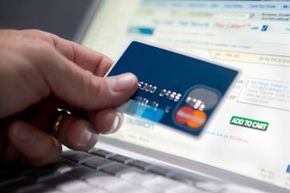While Amazon can't actually see you in the flesh, cookies give the company everything it needs to know about what you're interested in buying. And, no, we're not talking about anything that's edible. Cookies are tiny bits of text stored by Web sites on your computer. They're essentially notes about where you've been online, and they allow sites like Amazon to store and retrieve information about your likes and interests.
They may track your every Internet-based move, but Web sites can't read each others' cookies. So if you type in a search for the latest Stephen King book on Amazon, Overstock.com isn't going to know about it. The next time you visit Amazon, however, you'll be inundated with advertisements for it and other King books, as well as titles by similar authors.
However, we should note that Amazon does have an excuse for being so nosy. Cookies allow sites to be personally tailored to buyers' individual tastes and interests. But if all this extra attention makes you feel uneasy, don't fret. You can disable cookies by adjusting the settings on your Internet browser. Some browsers even have features that allow you to avoid tracking altogether, such as Google Chrome's Incognito setting.
Cookies aside, Amazon also learns about you through the information you've entered willingly in the past. The company collects the info you supply at checkout, located in your public profile and even from feedback you typed in a buyer discussion forum. Have you ever filled out one of Amazon's wish lists or started a gift registry? Well, if you have, the company is able to learn even more about your interests and the products you'd consider purchasing. From any of these entries or others, Amazon might see and store your phone number, e-mail address and possibly even your home address, too.
Of course, if you choose to keep a profile with your credit card numbers on the site for speedy checkout service, Amazon will keep this on file as well. Luckily, your information is safe. The company uses Secure Sockets Layer (SSL) software, which guarantees protected transmissions during checkout. The software actually encrypts information as it's entered -- keeping credit card numbers safe and secure.



